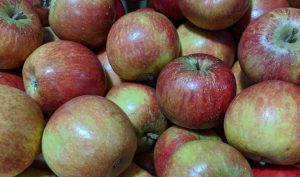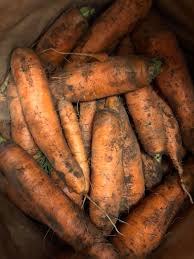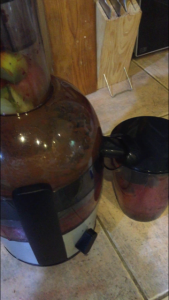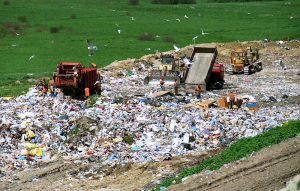There’s a farm shop that I like to frequent, especially at this time of the year, and I popped over last weekend to start getting stocked up and ready for Christmas. Entering the building (it’s always chilly) I was hit by the smell of apples – several varieties. The fact that I could smell them is just one of my reasons for shopping here. I could smell them because they were sitting out, loose and fresh. Not a single piece of fruit nor a single vegetable comes wrapped in plastic.
 The apples that aren’t immediately sold are bottled and sold as single variety juices. Granted it’s more expensive than the apple juice I can buy in the supermarket, but the juice is delicious. Rather than just necking it at breakfast time (tempting) I’ve experimented with mulling it – warming it gently in a pan with a cinnamon stick, a couple of cloves and a slice or two of fresh ginger. A teaspoon of honey melted into it soothes a sore throat, and a splash of gin will (I hope) turn it into a feel-good festive toddy.
The apples that aren’t immediately sold are bottled and sold as single variety juices. Granted it’s more expensive than the apple juice I can buy in the supermarket, but the juice is delicious. Rather than just necking it at breakfast time (tempting) I’ve experimented with mulling it – warming it gently in a pan with a cinnamon stick, a couple of cloves and a slice or two of fresh ginger. A teaspoon of honey melted into it soothes a sore throat, and a splash of gin will (I hope) turn it into a feel-good festive toddy.
Dirty carrots make my heart sing
 The vegetables make my heart sing. What is it about dirty carrots? They taste earthy and sweet, generally more ‘carroty’ overall; probably because they are fresh from the ground. Roasted, alongside parsnips, with mustard and maple syrup, they are gorgeous with any meal. Beetroots, peeled, chunked, spiked with garlic, thyme and balsamic vinegar and roasted in foil in the oven, add glorious colour and flavour to the plate. They also make a vibrant and vitamin-rich start to the day when juiced with carrots, apples and ginger.
The vegetables make my heart sing. What is it about dirty carrots? They taste earthy and sweet, generally more ‘carroty’ overall; probably because they are fresh from the ground. Roasted, alongside parsnips, with mustard and maple syrup, they are gorgeous with any meal. Beetroots, peeled, chunked, spiked with garlic, thyme and balsamic vinegar and roasted in foil in the oven, add glorious colour and flavour to the plate. They also make a vibrant and vitamin-rich start to the day when juiced with carrots, apples and ginger.
 Leeks, still with fresh mud on their roots, need a really good rinse in cold water. They sing when combined with butter and cheese, but mine were made into soup; a hearty, bacon-infused lentil soup, which is now deep in the freezer for a Twix-mas lunch. It’s in there beside the red cabbage, which I thinly sliced with apples and red onions, and slow-cooked in spices and port. That’ll make a jewelled addition to the plate on Christmas Day. Still on my list to buy are potatoes. Roasted, baked, or sliced, studded with garlic and baked in cream, they deserve centre stage on any table. Just don’t expect me to eat sprouts. Not even one.
Leeks, still with fresh mud on their roots, need a really good rinse in cold water. They sing when combined with butter and cheese, but mine were made into soup; a hearty, bacon-infused lentil soup, which is now deep in the freezer for a Twix-mas lunch. It’s in there beside the red cabbage, which I thinly sliced with apples and red onions, and slow-cooked in spices and port. That’ll make a jewelled addition to the plate on Christmas Day. Still on my list to buy are potatoes. Roasted, baked, or sliced, studded with garlic and baked in cream, they deserve centre stage on any table. Just don’t expect me to eat sprouts. Not even one.
Little evidence of my efforts
My weekend was one of chopping and cooking, stirring and chilling, freezing and ticking things off lists. But for all my hard work (my mincemeat is made and bottled, ready for next weekend’s pie-making extravaganza) there is little evidence of my efforts.
The fruit and veg peelings went onto the compost heap and the paper bags, egg-boxes and bottles went into the recycling. All I am left to dispose of is the tiny metal lid from the apple juice bottle. Even the egg shells (crushed, so a witch can’t use them as a boat) were bunged on the compost heap.
To be honest, I’m feeling a bit smug about it all, but believe me, it’s not always like this. And it’s not a perfect solution by any stretch of the imagination – the farm shop I use is an hour’s round trip in the car. I’ll be passing again next week on my way to a work meeting, but I usually have to make a special trip. It seems that whatever part of the planet I might be saving by not accepting the supermarket plastic, I’m damaging by burning fossil fuels in my car. There is simply not a closer farm shop to my house – at least, not one that I’m aware of. The irregularity of my home life means I’m not the best candidate for a regular veg-box.
Too much still has to go to landfill
 I’m ashamed to admit it, but more than half of my food bill is usually spent in supermarkets, and the unnecessary waste that leaves me with is shocking. Some of it is recyclable (but is it actually recycled?), but too much still has to be burned or go to landfill. And that simply can’t be right.
I’m ashamed to admit it, but more than half of my food bill is usually spent in supermarkets, and the unnecessary waste that leaves me with is shocking. Some of it is recyclable (but is it actually recycled?), but too much still has to be burned or go to landfill. And that simply can’t be right.
Some supermarkets are getting better – I’ve switched from Tesco to Morrisons because I can choose loose fruit and veg and pack it into their new paper bags, and I can bring my own containers to their meat and fish counters (when I remember). But the quality and freshness just can’t match that of the farm shop or the butcher.
Strides are being taken. Research is being done into creating food packaging from milk protein, seaweed and some of the by-products from fish processing, which will cut down on the amount of plastic used, and I welcome that. At this time of seasonal excess, the amount of waste we create is brought more sharply into focus. As we move into a new decade, could we each do another little bit to save the planet, one dirty carrot at a time?



